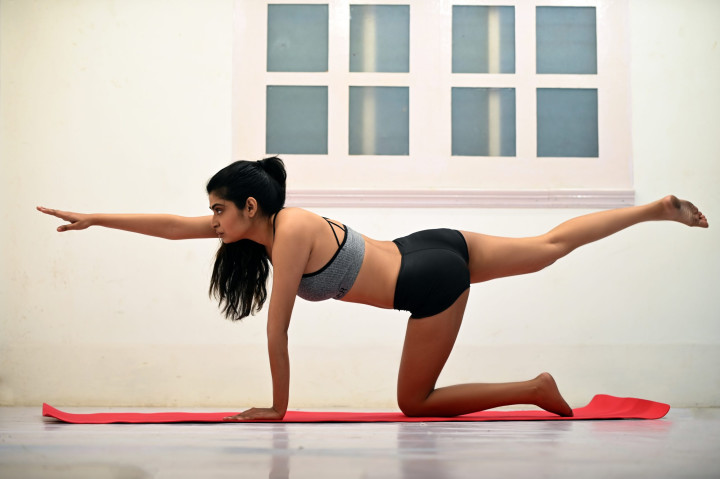Useful Habits: 20 Daily Goals That Lead to Lasting Change (Part 1)
Did you know that 40% of what you do every day are considered habits? A habit is an action that you do without even thinking about it. Now this begs asking:
- How much of what you repeatedly do every day is actually good for you?
- Are your habits contributing to your bigger goals?
- What habits should you try to establish for a more fulfilled life?
Adopting good habits is one of the most useful investments of time and energy. Once a good habit is established, it will enrich your life for the better. A life built on habits that are attuned to your personal, professional, health, and financial goals will bring you a life full of happiness, fulfillment, and overall well-being.
If you’re someone looking for positive change, this article is for you. We’ll take a look at some of the most useful habits you can adopt that will bring lasting change in your life. This article is the first in a four-part series on habits that lead to lasting change. Read on!
Exercising regularly
According to the CDC, exercising regularly is one of the most important things you can do for your well-being. It improves brain health, strengthens your bones and muscles, reduces the risks of diseases, and improves your ability to perform day-to-day activities.
Mentally, exercise has been shown to relieve symptoms of depression, stress, and anxiety, and even reduce symptoms of ADHD. If you exercise regularly, you are much more likely to sleep well, concentrate better on your tasks, have higher self-esteem, and have more energy for the things you need to do on a daily basis.
Do not underestimate the power of physical health. Better physical health leads to quality of experience. It is recommended to engage in 30 minutes of moderate physical activity per day.

How to establish a sustainable exercise habit
- Do not jump to intense workout routines right away. Adopt a manageable exercise at first like 5 minutes of stretching or walking per day.
- Choose activities that you actually enjoy. Exercise should not feel like a chore. The moment it does, you will unconsciously try to avoid it.
- Make it convenient. Set a reminder, pre-decide the location, prepare your outfit the night before, etc.
- Focus on consistency but don’t feel bad if you miss a session. The important thing is you pick it right back up.
- Schedule it. Set a time of day for exercise. By making exercise part of your regular routine, it will be much easier to adopt it as a habit.
Meditating for 5 minutes every day
People have been meditating for 7,000 years and it is for good reason that it continues to be a favored activity in modern times. Research has shown that meditation helps decrease symptoms of anxiety, depression, and PTSD, improves mental clarity and problem-solving skills, and helps with emotional regulation. Physically, meditation helps you sleep well and is good for the heart.
When practiced consistently over a long period of time, regular meditation practice can help you focus and concentrate well on tasks, sleep better, recover from stress quickly, and stabilize your mood. It also helps increase your brain’s gray and white matter which will help you make decisions well and quickly.
Tips for starting a meditation practice as a beginner
The best thing about meditation is that you can get started on it right away. Dedicate a specific time of your day to sit with your thoughts. Here are useful tips you can use to successfully start a sustainable meditation practice.

- Set a timer. Don't be intimidated by the idea of long, drawn-out sessions. Start small! Set a timer for just 5-10 minutes and gradually increase the duration as you get comfortable. Consistency matters more than how long you actually meditate.
- Meditate with others. Feeling unmotivated? Find a meditation buddy online or join a local group. The accountability and shared experience can be incredibly supportive, especially for beginners.
- Focus on your breathing. No need for complicated mantras or rituals. Simply focus your attention on your natural breath, feeling the rise and fall of your chest and abdomen. This simple anchor helps quiet the mind and make you aware of being in the moment.
Choose consistency over length. Don't get discouraged if your mind wanders – it's completely normal! Gently guide your attention back to your breath whenever you stray. The key is to show up regularly, even for short periods, to reap the long-term benefits.
Eating breakfast
Breakfast is often hailed as the most important meal of the day, and for good reason. It jumpstarts your metabolism, sets the tone for healthy choices throughout the day, and provides sustained energy to power your activities. Breakfast eaters are also more likely to meet the daily recommended intake of vitamins and minerals than those who don't. Eating breakfast helps you control your weight and it fills you up even before you’re really hungry, making it less likely for you to reach for unhealthy snacks when hunger strikes.
But for many, fitting in a nutritious breakfast amidst the morning rush can feel like a challenge. Here are some tips you can use to establish a healthy breakfast routine that works for you.
What to eat
Start with a foundation of fiber and protein such as eggs, Greek yogurt, whole-wheat toast, oatmeal, and chia seeds. Try to incorporate at least a half-cup of colorful fruits or vegetables per serving. Try to limit your sugar intake as they provide a quick burst of energy followed by a crash, leaving you feeling hungry soon after.

Plan your meals
Dedicate some time on weekends or evenings to prepare breakfast components like overnight oats, chopped vegetables, hard-boiled eggs, or pre-measured granola. This will save you precious time in the mornings. Choose a few breakfast options you actually enjoy to prevent indecisiveness and unhealthy last-minute choices. And lastly, keep things simple. Some simple recipes can be just as nutritious as elaborate meals.
To help you get started, here are 25 easy-to-make breakfast recipes you can do in 5 minutes.
Getting enough sleep
What does the body do when you fall asleep?
- The brain stores new information, consolidates memories, and gets rid of toxic waste
- Nerve cells communicate and reorganize, maintaining healthy brain function
- The body repairs cells and stores energy
- The immune system stores useful information that helps it respond rapidly to threats
- Important health-regulating hormones are released
Just one night of compromised sleep can create a prediabetic state in an otherwise healthy individual. The long-term effects of bad sleep can lead to a terrifying host of health issues such as heart disease, diabetes, obesity, hormone problems, pain, mental health disorders, and a faulty immune system.
And because your immune system is what helps you fight off viruses, bacteria, and other risks, a faulty immune system essentially sabotages your health and by extension, your quality of life. Recent data also suggests that about 8% of deaths from any may be linked to poor sleep.
How much sleep should an adult get every night?
Experts recommend that an average adult gets 7 to 9 hours of shuteye every night.
What are the benefits of having good sleeping habits?
When you have good sleeping habits, you are less likely to get sick, it’s easy for you to maintain a healthy weight, you reduce your risk of developing serious health problems such as heart disease and diabetes, you get along better with people, your mood is better, you can think clearly and have better focus at whatever you do, and you make better decisions in life. Recent studies also suggest that those who have a healthy relationship with sleep are more likely to live long and well.

How to establish healthy sleeping habits
The University of Texas MD Anderson Cancer Center gives the following tips on how to establish healthy sleeping habits.
- Sleep at the same time every day.
- Do the same thing every night before bed.
- Use your bedroom for sleeping only.
- Get exercise 2 hours before bedtime.
- Keep naps during the day short.
- Eat healthy.
Reading
Studies have shown that children who enjoy reading tend to do better in school and life, even if their parents have not gone to college or their family doesn't have a lot of money. Reading for fun can help adults learn better than taking formal classes, and countries with more literate adults tend to be richer.
But there’s more. Here are excellent reasons why you should start reading if you haven't already.
- Reading exercises your brain, helping slow down cognitive decline
- Reading improves communication skills
- Reading provides a way for escape and adventure
- Reading boosts your brainpower
- Reading provides a form of entertainment
- Reading helps you explore different values from various different perspectives and ways of life
- Reading enhances creativity
- Reading helps lower stress levels
Tips on how to start reading consistently
- Set a daily reading goal (e.g. read for 10 minutes or 10 pages before bed)
- Start by reading things you enjoy (e.g. magazines or short stories)
- Don't make a fuss about not finishing a book
- Clear out a schedule for reading
- Try audiobooks instead
- Join a book club

The best advice for picking up reading as a habit is to make it a pleasant experience. Don’t worry about reading about the “big books” right away, if that is your goal. Read for pleasure first. When you associate the experience with enjoyment, you’re more likely to keep doing it.
“People try to do all sorts of clever and difficult things to improve life instead of doing the simplest, easiest thing — refusing to participate in activities that make life bad.” - Leo Tolstoy, Russian writer
Getting adequate sleep, exercising regularly, eating breakfast, meditating daily, and reading all sound like cliches but there’s a reason why they’re being recommended by experts time and time again. Sometimes, the things you so easily ignore really are the answers you’ve been looking for all along.
So which of the habits I’ve mentioned are you already doing? Which ones do you think you should start working towards? I recommend adding the new habit to your daily routine. A simple 5-minute meditation session or perhaps doing a simple pre-bedtime ritual will make a difference in quickly incorporating a new healthy habit into your day-to-day experience.
Stay tuned for my next article in this series on habits. Meanwhile, you may start tracking your habit-building progress on TaskSpur and seamlessly monitor your journey and life goals from the get-go.
References
- Life, L. (2023, October 11). Redefine Yourself: 20 Habits That Can Change Your Life - Loving life. Loving Life. https://lovinglifeco.com/health-and-wellbeing/redefine-yourself-20-habits-that-can-change-your-life/
- 20 Micro Life-Changing Habits You can start Today | Hive. (2022, November 3). Hive. https://hive.com/blog/small-life-changing-habits/
- Chrissy. (2023, July 27). 52 Habits to Literally Change Your Life [Free Printable]. Organise My House. https://organisemyhouse.com/52-habits-to-change-your-life/
- Professional, C. C. M. (n.d.). Meditation. Cleveland Clinic. https://my.clevelandclinic.org/health/articles/17906-meditation
- Department of Health & Human Services. (n.d.). Breakfast. Better Health Channel. https://www.betterhealth.vic.gov.au/health/healthyliving/breakfast#why-breakfast-is-so-important
- Breaks during the workday - toward a respectful workplace. (n.d.). Toward a Respectful Workplace. https://workplace.msu.edu/breaks-during-the-workday/
- Reflect. (2023, May 21). 12 Long-Term effects of Meditation on the Brain. Reflect. https://www.meetreflect.com/blog/meditation-effect-brain/
- Hunt, C. (2022, March 22). Four Tips for Sticking to a Meditation Practice. Greater Good Magazine. Retrieved February 24, 2024, from https://greatergood.berkeley.edu/article/item/four_tips_for_sticking_to_a_meditation_practice
- Benefits of physical activity. (2023, August 1). Centers for Disease Control and Prevention. https://www.cdc.gov/physicalactivity/basics/pa-health/index.htm
- Robinson, L. (2024, February 5). The mental health benefits of exercise. HelpGuide.org. https://www.helpguide.org/articles/healthy-living/the-mental-health-benefits-of-exercise.htm
- Exercise: How much do I need every day? (2023, July 26). Mayo Clinic. https://www.mayoclinic.org/healthy-lifestyle/fitness/expert-answers/exercise/faq-20057916
- The science of sleep: Understanding what happens when you sleep. (2021, August 8). Johns Hopkins Medicine. https://www.hopkinsmedicine.org/health/wellness-and-prevention/the-science-of-sleep-understanding-what-happens-when-you-sleep
- How much sleep is enough? | NHLBI, NIH. (2022, March 24). NHLBI, NIH. https://www.nhlbi.nih.gov/health/sleep/how-much-sleep
- Sleep
- Get enough sleep - MyHealthFinder | Health.gov. (2021, August 1). https://health.gov/myhealthfinder/healthy-living/mental-health-and-relationships/get-enough-sleep
- Getting good sleep could add years to your life - American College of Cardiology. (2023, February 22). American College of Cardiology. https://www.acc.org/About-ACC/Press-Releases/2023/02/22/21/35/Getting-Good-Sleep-Could-Add-Years-to-Your-Life
- Cordeiro, B. (2013, October 1). 8 healthy sleep habits. MD Anderson Cancer Center. https://www.mdanderson.org/publications/focused-on-health/healthy-sleep-habits.h13-1589046.html
- Centre for Longitudinal Studies, Institute of Education, University College London. (n.d.). Social inequalities in cognitive scores at age 16: The role of reading - UCL Discovery. https://discovery.ucl.ac.uk/id/eprint/1473708/
- Nair, M. (2022, November 22). Why is Reading Important for Your Growth? University of the People. https://www.uopeople.edu/blog/why-its-important-to-read/
- Ross, A. (2016, March 9). How meditation went mainstream. TIME. https://time.com/4246928/meditation-history-buddhism/